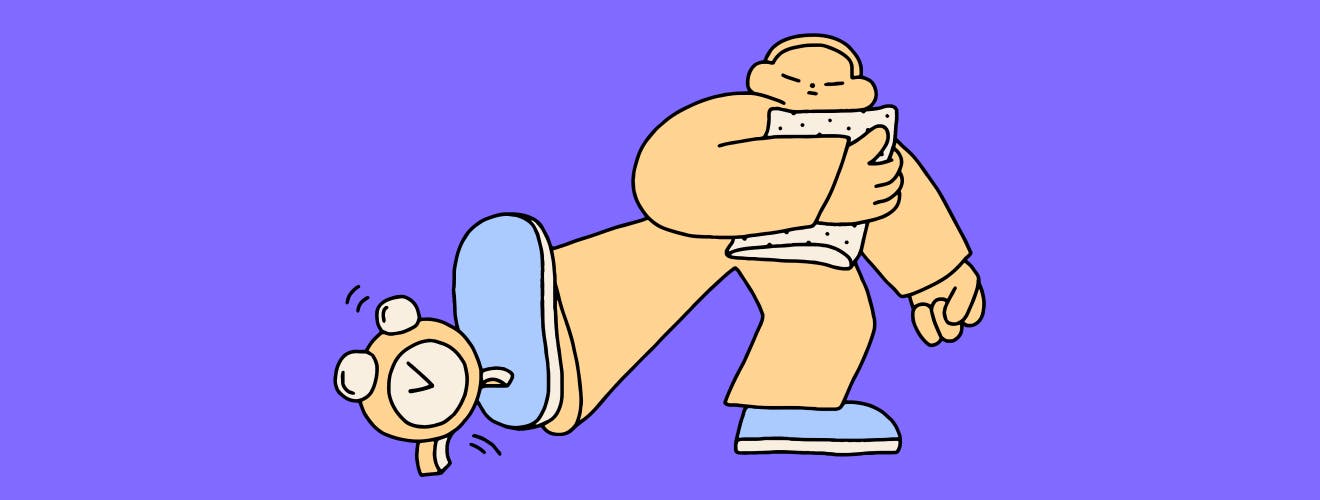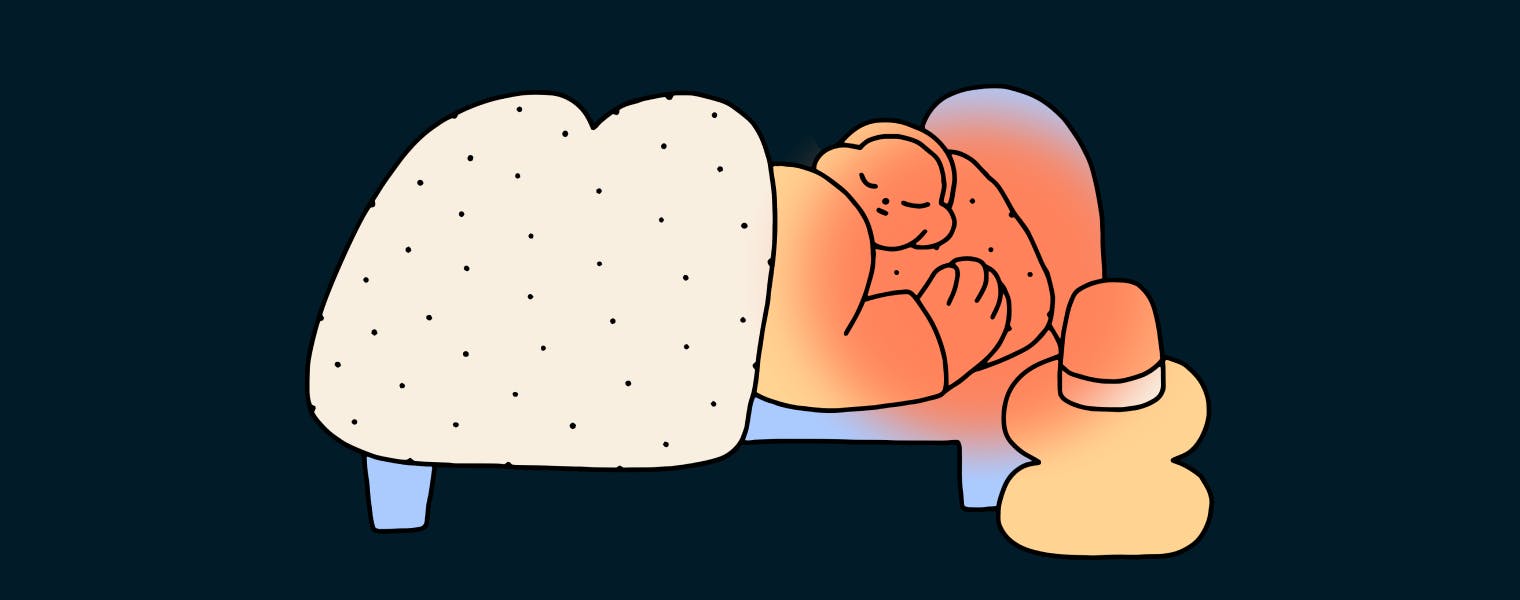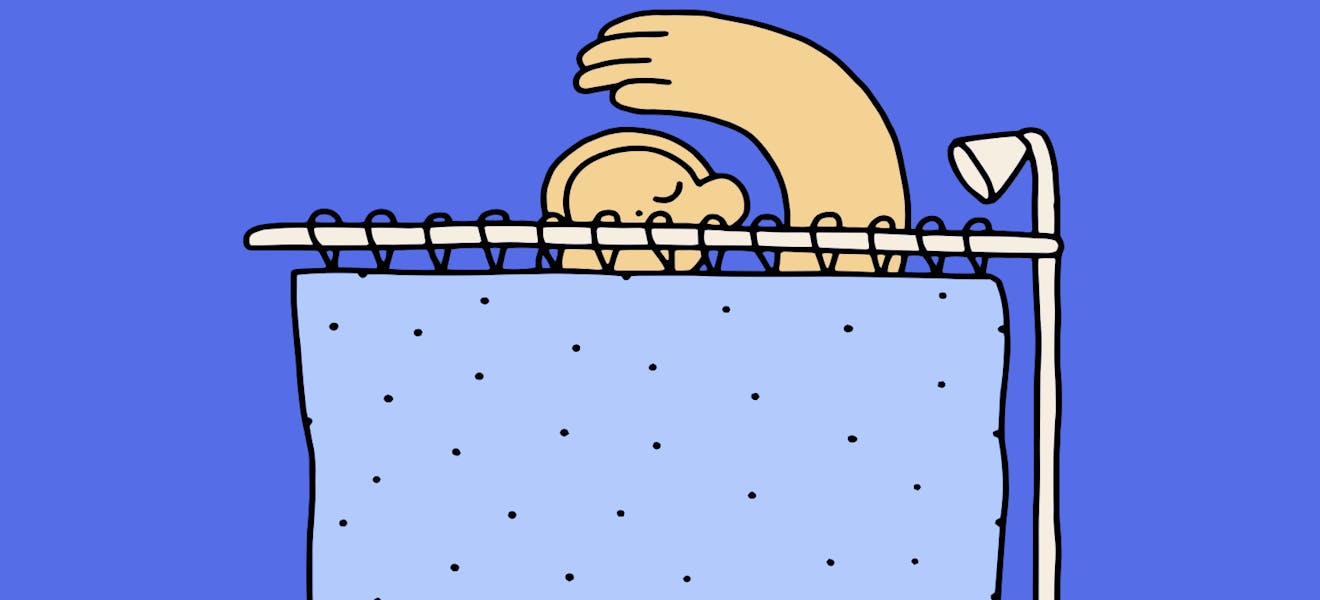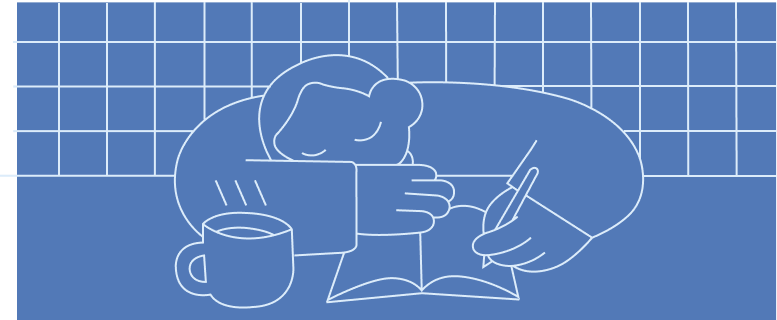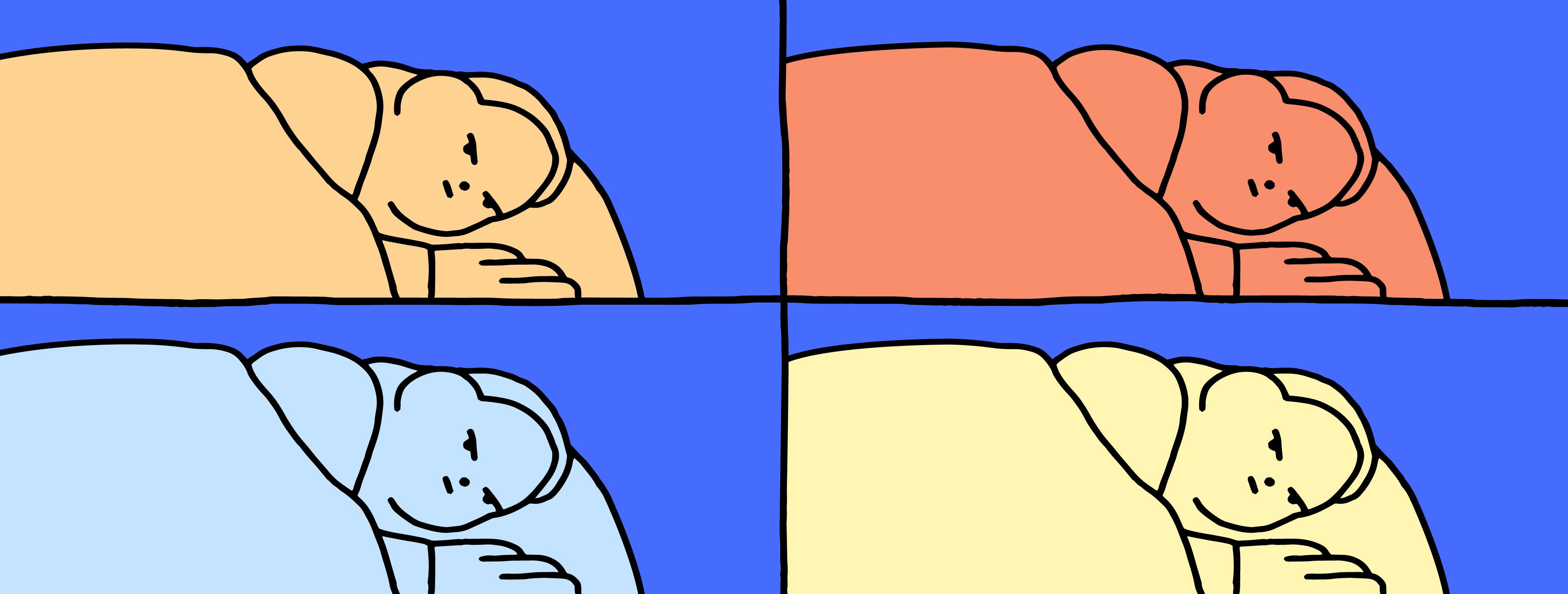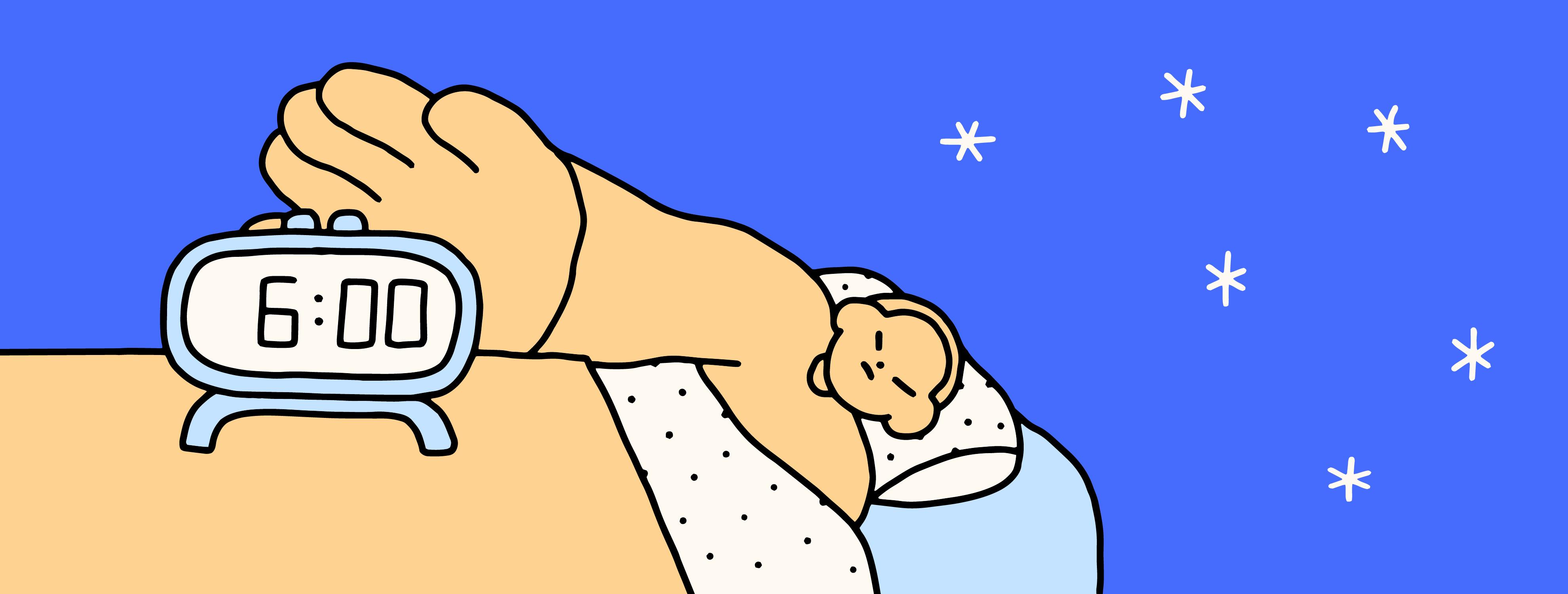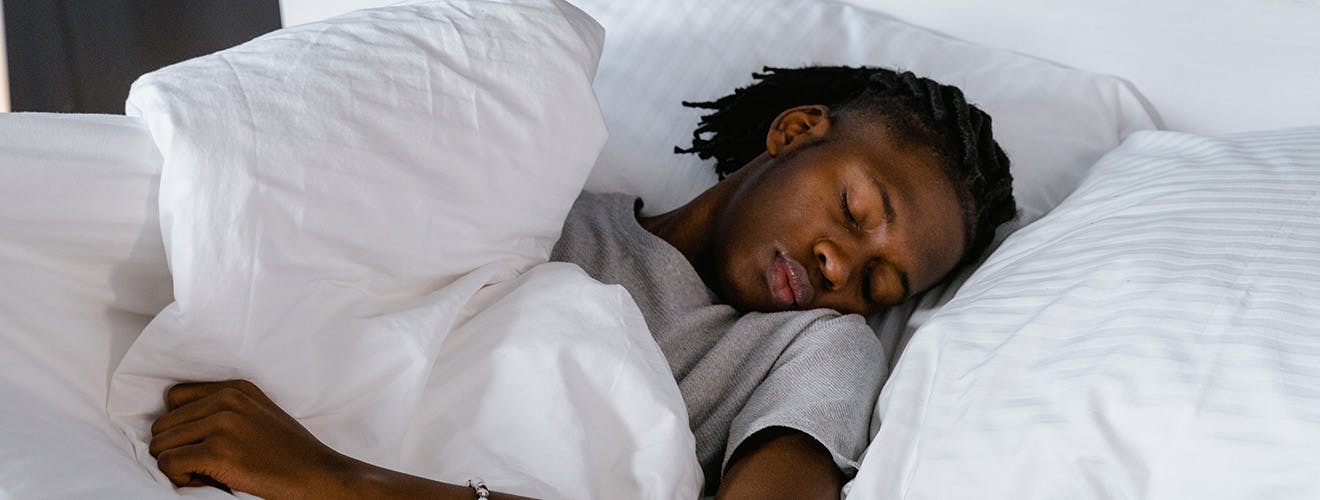What is Restless Sleep?

For some folks, a good night's sleep is easy to achieve. For restless sleepers, things are a bit more complicated. So, what is restless sleep? The answer spans from having difficulty falling asleep to frequent nighttime awakenings. While it is commonly associated with moving about during sleep, being an active sleeper isn't always a determinant of restless sleep.
Often, restless sleep means having racing thoughts or the feeling of not enough sleep. Most of the time this could be attributed to poor sleep hygiene. However, in certain cases, more intense intervention may be required. If you're having trouble falling asleep or staying asleep, you may be experiencing restless sleep. Read on to learn more about the condition and what you can do to avoid it.
Is it Normal to Experience Restless Sleep?
Everyone experiences restless nights once in a while. Research suggests it's normal to have between 10 and 30 periods of wakefulness or restlessness at night.
However, there are certain warning signs to look out for. If you're having sleepless nights three or more days a week, having trouble falling back to sleep after waking up in the middle of the night, waking up feeling exhausted, or spending more than 30 minutes awake in the beginning or middle of the night, you might be experiencing a sleep disorder.
One thing you need to note is that there are different standards of quality sleep for every age demographic. While restless sleep can happen to anyone at any age, it is more common for adults and the elderly.
Infants normally spend up to 18 hours a day sleeping as a whole but only sleep about 2 to 3 hours asleep at a time. They are generally unable to sleep through the night, but this is not a cause for concern. They can develop restless sleep as a result of separation anxiety at nine months old, as a result of separation anxiety, a greater ability to recognize and control their environment, or napping too soon before bedtime.
Meanwhile, toddlers may often initiate restless sleep at about 18 months old which may also be caused by separation anxiety. This often translates to the inability to self-soothe, calm down, and fall asleep, particularly at the beginning of the night and/or if they are awakened during the night.
As children grow older, any hint of sleep problems can often be attributed to sleep hygiene, although other factors may also be involved. Children are more prone to experience parasomnias or abnormal behaviors during sleep. These include sleep talking, sleep terrors, sleepwalking, and excessive nightmares.
These parasomnias are generally not harmful, and it is recommended for parents to gently comfort a child back to sleep and not wake them up. These behaviors usually occur only sporadically and eventually stop on their own without the need for intervention. However, should parasomnias begin to interrupt sleep and occur rather frequently or pose a risk to the child, you may need to see a sleep specialist to check for more serious sleep disorders.
Meanwhile, teens often experience a later, "night owl" sleep schedule as a result of a biological shift in their sleep timing. This, along with stress and anxiety related to school or social life can factor in disturbed sleep for adolescence. Poor sleep habits and excessive use of devices in bed can also result in lower sleep quality.
Adults tend to have more co-occurring health problems that cause sleep disturbances. Work, family, and social obligations also contribute to poor sleep quality. Add in stress, anxiety, and depression, and deep sleep flies right out the window.
The elderly are the most vulnerable to restless sleep because they spend more time in lighter stages of sleep. This means they tend to be more easily disturbed, leading to less restorative sleep.
The circadian rhythm of seniors also often shifts to waking up earlier than they intend to as a result of greater difficulty to get sufficient daylight exposure. They also have more physical and mental health issues, often requiring prescription medications which may contribute to poorer sleep patterns.
What Are the Symptoms of Restless Sleep?
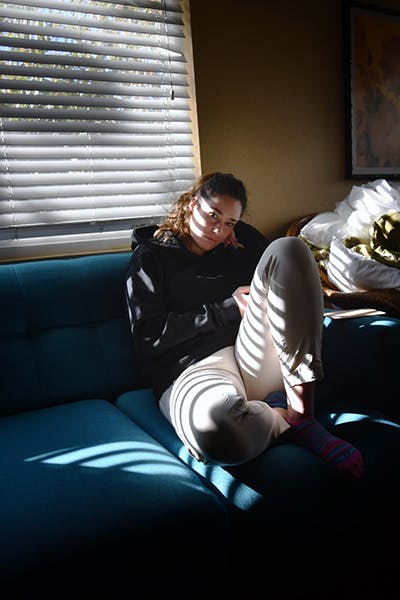
There is no clinical definition for restless sleep, so it's more of an "eye of the beholder" thing. Whether you're the one experiencing it or you're observing someone going through it, what is considered restless sleep is totally up to you.
That said, this is a common enough occurrence for the National Sleep Foundation to have a general sense of what it's like to experience restless sleep.
Here are the signs to look out for if you suspect that you or someone you know is experiencing restless sleep:
- frequent tossing and turning
- constant stirring because of anxiety or racing thoughts
- unable to fall back asleep after waking up unexpectedly
- inability to sleep soundly, often accompanied by frustration
- feeling that you're only half-asleep, or can't have a deep sleep
- feeling tired and sluggish in the morning
- brain fog
- waking up without wanting to
- loud snoring, often involving gasping or choking sounds
- sleep talking or yelling
- teeth grinding
- sleepwalking, or any notable movement of the limbs
- excessive daytime sleepiness
If these symptoms persist, you may experience sleep deprivation due to frequent sleep disturbances.
What Causes Restless Sleep?
There are many possible causes as to why you're not getting restful sleep at night. At times, it comes down to your sleep environment, particularly in situations such as when you have a newborn or puppy in the house.
However, there are also medical conditions that may prevent you from achieving healthy sleep. Here are possible causes of restless sleep and ways to combat them.
Obstructive Sleep Apnea
Obstructive sleep apnea (OSA) is one of the most common sleep-related breathing disorders characterized by loud snoring, gasping, choking, snorting, and interruptions in breathing while asleep. This is caused by the repetitive collapse of the upper airway during sleep, which can momentarily cut off your breathing.
People with OSA often experience daytime sleepiness because of decreased oxygen supply flowing to the brain. Sleep quality is affected, so you may feel tired, forgetful, drowsy, disgruntled, or grumpy as a result.
If you have a family history of OSA, you have a higher risk of having OSA. Other risk factors for sleep apnea include obesity, smoking, large tonsils, a large tongue, a narrow palate, a collar size of 16 to 17 inches or more, and retrognathia, or when your lower jaw is shorter than your upper jaw.
People with sleep apnea and obesity may benefit from weight management and exercise which has been shown to decrease the severity of OSA. Another recommended treatment for OSA is continuous positive airway pressure (CPAP) therapy which is administered using a face mask worn at night.
This mask delivers positive airflow to keep your airways open and is highly effective. If the CPAP machine does not work, doctors commonly recommend the use of bilevel positive airway pressure (BPAP) machines that deliver two kinds of pressures in response to your breathing.
For milder cases that do not necessarily need the use of CPAP or BIPAP machines, sleep position therapy is recommended. Sleeping on your back often makes OSA worse for some people, so doctors would suggest sleeping on your side to alleviate symptoms.
If all else fails, a doctor may recommend surgery to correct the problem
Restless Leg Syndrome
If you ever get the powerful urge to move your legs in moments when you're trying to relax or sleep, you may be experiencing a neurological condition called restless legs syndrome (RLS).
This condition is often accompanied by an unpleasant sensation in the legs that can only be alleviated by moving them. This affects about 10% of Americans and can occur at any age. It's usually more severe in middle age or later years, and women are twice more likely to experience it.
Restless legs syndrome can interfere with sleep and cause sleep deprivation. About 80% of the time this is accompanied by periodic limb movement of sleep (PLMS) which causes your legs to twitch and jerk during sleep every 15 to 40 seconds.
There is no known cure for restless legs syndrome, but there are different things you can try to manage your symptoms. These include decreasing your caffeine, alcohol, and tobacco intake, keeping a consistent sleep schedule, regular exercise, massage and muscle stretches, and practicing yoga or meditation.
Using a heating pad or ice pack when symptoms occur works for some people, as does soaking in a hot bath before bed.
Rapid Eye Movement Sleep Behavior Disorder

Rapid eye movement (REM) sleep behavior disorder is a sleep disorder characterized by physically acting out vivid, usually unpleasant dreams with vocal sounds and sudden, violent arm and leg movements. This is sometimes called dream-enacting behavior and occurs during REM sleep.
People don't normally move during REM sleep which is about 20% of your sleep and occurs primarily during the second half of the night. This is where dreams tend to happen.
In an average person, REM sleep is often accompanied by temporary paralysis of the body. This is because nerve pathways in the brain that prevent muscles from moving are particularly active during this time. Meanwhile, in REM sleep behavior disorder these pathways don't work which makes you act out your dreams.
This condition can be physically harmful, so doctors recommend using physical safeguards such as padding to ensure your safety. You may also be prescribed medications such as melatonin or Clonazepam (Klonopin) to help you reduce symptoms.
Poor Sleep Hygiene
Just as skipping brushing your teeth can be detrimental to your dental health, having poor sleep habits can make you more prone to restless sleep. If you have an erratic sleep schedule, it can make it hard to fall asleep or stay asleep when you need to.
Keeping a regular sleep schedule is a great first step to having a good night's sleep. Making your bedroom as comfortable as possible can also do wonders for your sleep. We suggest avoiding blue light-emitting gadgets, taking a warm bath before bed, investing in a good mattress, and keeping your room as dark as possible. A cooler temperature is more conducive to sleep, so keeping your bedroom cool can also help.
Diet
While it may not seem like your food intake causes anything aside from weight gain or weight loss, we assure you it does. Everything you put in your mouth has a profound effect on your overall health, and sleep is a huge part of it.
For example, eating a huge amount of food can make your organs work harder causing heartburn. This can also make you feel sluggish without being able to relax.
Complex sugars or refined carbohydrates too close to bedtime can also cost you. These foods can stimulate you and make it harder to fall into the deeper stages of sleep, causing you to wake up frequently.
Alcoholic beverages and caffeine can also disrupt your sleep stages by interrupting the body's circadian rhythm. Caffeine can also affect your cardiovascular system. This makes your blood vessels constrict and expand, at the same time increasing stomach acids and urine output.
If you don't like having to get up and pee in the middle of the night, we suggest avoiding caffeine before bed.
All in all, your diet has a profound effect on your sleep health. For better sleep, keep a healthy, balanced diet and avoid alcohol, caffeine, and other stimulants before bed.
Stress and Anxiety
Stress has a way of making it hard to sleep by causing both physical and mental discomfort, so if you're going through a stressful time it's normal to have a few restless nights.
In the same vein, anxiety has a negative impact on sleep quality. Apart from the racing thoughts, anxiety can also make your body feel restless resulting in tossing and turning.
Self-care is important to combat both stress and anxiety. It's also okay to admit you need help if you're having a hard time managing it.
Practicing mindfulness and meditation can be beneficial, but therapy can also help you control your stress levels and anxiety. Sometimes, medications can help manage your symptoms, but we suggest consulting a healthcare provider before you take anything.
Restless Sleep vs. Insomnia
medical term, insomnia is formally defined as a sleep disorder that can be diagnosed by a health professional.
Insomnia is defined as the "persistent difficulty with sleep initiation, duration, consolidation or quality." Having insomnia means either having difficulty falling asleep (sleep-onset insomnia) or having difficulty staying asleep (sleep maintenance insomnia).
While insomnia may be used colloquially as a banner term for sleeping problems as a whole, insomnia is a specific sleep disorder with its own set of symptoms and risk factors. IT may also be a symptom of many health conditions such as depression or anxiety.
As a rule, the majority of people with insomnia likely experience restless sleep, but the same cannot be said of the reverse. Not all people with restless sleep have insomnia.
If you suspect that you have either, you can consult a sleep doctor or try keeping a sleep journal to monitor your sleep.
Rest Easy With Sandland Sleep
A period of tossing and turning once in a while is a normal part of life, and can often be battled with a little tweaking in your sleep environment and habits. However, sometimes even the most zen sleeping environment can't stop restless sleep from visiting you.
Sandland Sleep can help you catch up on much-needed Z's with the help of a powerful blend of plant-powered ingredients. Derived from all-natural hemp extract and boosted with low-dose melatonin, our sleep supplements can help you get a more restful sleep every night.
Our formula is clean, safe, and guaranteed to help you get restorative sleep without knocking you out. Unlike sleeping pills, our products do not alter your brain chemistry and instead bind to sleep receptors in your brain to gently nudge you to sleep.
Got questions? Check out our website to learn more about how Sandland Sleep can help get back in the better sleep game.
There are different causes of restless sleep. At times, it's just a problem with your sleeping environment, particularly if you live in an area with a lot of noise, or live with a child or pet. In other instances, the problem involves poor sleep hygiene or medical conditions such as obstructive sleep apnea, restless leg syndrome, anxiety, REM sleep behavior disorder, or other psychological conditions. Your diet may also be leading to sleep problems especially if you drink alcohol, eat a lot of junk foods, or smoke.
People with anxiety often feel on edge or extremely nervous. They also tend to have a lot of irrational thoughts which can lead to feelings of irritation and restlessness. This can often lead to a night of restless and insufficient sleep.
If you're having a night of restless sleep, the best remedy is to practice good sleep hygiene. You can do this by creating a comfortable bedroom environment, ensuring that you're at an optimal body temperature. You can also practice relaxation techniques, and do your best to avoid an inconsistent sleep schedule. Try to get to bed at the same time each night and stay active during the day. A healthy and balanced diet can also go a long way in ensuring you have a good sleep. When all else fails, we recommend trying sleep aids such as Sandland Sleep supplements.
Even if you're not an active sleeper, 10 to 30 periods of restlessness are normal. It's also normal to wake up in the middle of the night because this is when your brain is transitioning from deep sleep to REM sleep. Waking up in the early morning is also nothing to worry about. Some sort of movement in sleep is also normal, most adults move about 50 to 60 times per night. Restless sleep for a few days isn't going to kill you, especially if your sleep debt isn't high. We recommend consulting a sleep center if your restless sleep persists for a month or more or starts affecting your daily life.
